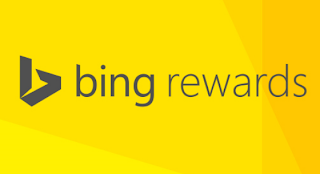Happy New Year everybody
1! Now that all the champagne bottles have been emptied and recycled and glitter washed out of our hair and clothes
2, we're tasked with trying (and generally failing) to make good on our New Year's resolutions. Considering you're on a personal finance blog right now, you may have some savings goals for 2014. Unfortunately, the biggest barriers we face in accomplishing these goals are ourselves. An extra
latte here and there can't possibly make a difference, until of course it does.
Fortunately for us, there's a great online system called
Stickk that can give us the extra push we need to meet our savings goals.
Stickk was created by a professor of economics at Yale,
Dean Karlan, who is known for his work in development economics. One of his most popular papers is on
an innovative way to help people quit smoking. His research team offered smokers the chance to open savings accounts in which they had to deposit funds for six months. If at the end of the six months they tested positive for nicotine or cotinine (compounds found in cigarettes), their money was given to charity. But wait, here's the surprising part. If they succeeded in quitting smoking, their grand prize was
merely getting their deposits back. Not only did people sign up for this program, it was more effective in getting people to quit smoking
3 than just receiving information on the dangers of smoking.
Stickk uses this idea of letting us raise the stakes for failure by creating our own goals, picking how much money is on the line and where it goes, and even designating a referee to report on our progress. Typical personal finance related goals deal with saving money at regular intervals for a big purchase or curbing ones spending.
Pros:
- Provides an extra push you may need to meet your personal finance goals.
- Can link with some financial institutions to offer custom goals and rewards. If your bank or credit union has an agreement with Stickk then they can help you set up goals and possibly referee for you; they do have your financial information after all.
- Goals progress can be reported weekly or one time. If your goal is recurring, like saving $100 a week for 20 weeks, you can report out every week.
Cons:
- If you have a referee, you will have to share your personal finances with them. Enough said. Talking about your personal finances with friends and family can be uncomfortable. Be sure to pick somebody who you think
- If you fail at your goal, you'll be worse off than if you hadn't signed up for Stickk. I put this in the cons list, but when you think about it this potential downside is why you'd sign up for Stickk in the first place.
Overall, I think Stickk can be a great tool if you're the type of person who needs an extra nudge to get their personal finances in order and isn't uncomfortable getting a referee to help you achieve your goals. Of course, there are lots of people out there for whom Stickk isn't useful. Either they've already got their personal finances in line and need more help or require more than just a nudge.
And, because I wouldn't recommend a service without trying it myself, I signed up for a Stickk account in February of this year where my goal was to write at least twelve CuttingEdgePersonalFinance posts for next year. Hopefully it'll give me the nudge to stickk to my goals!
1. Apparently I'm failing my New Year's resolution of regularly updating this blog because I started writing this in January. This is depressing. :/
2. If you're going to do New Year's do it right.
3. At least in the short term if you're being a stickkler.

